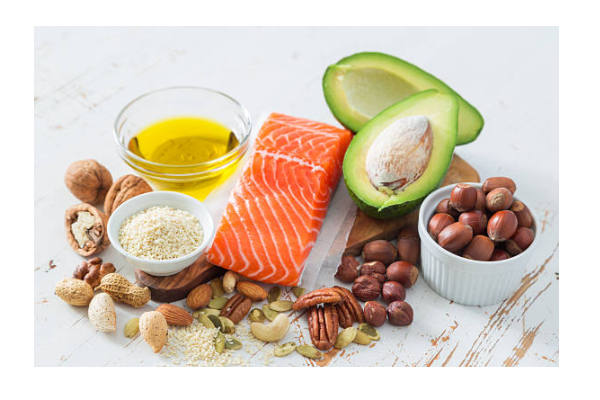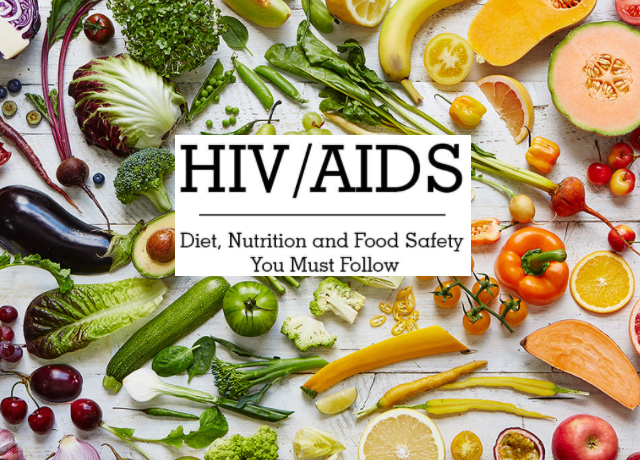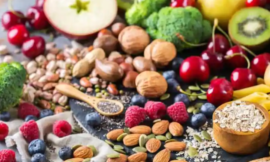There is no proper diet plan for HIV, but if you follow a diet plan which will improve your overall health it will manage all health disease.
The HIV – diet will help to boost your immune system, here your body uses nutrients to keep up its defenses against germs, eating well can help you fight off infections. We get energy form what we eat in day, so if we choose the right nutrients foods which boost your energy, keep you strong, help you avoid health complications, and ease issues brought on by HIV and its treatments.
Eat plenty of fruits and vegetables
Fruit and vegetables provide vitamins, minerals and fibre. Like starchy foods, they should make up a third of your daily food intake. Try to eat five or more portions of fruit or vegetables each day.
Fruit and vegetables can help protect against certain cancers and heart disease. They are low in fat, so increasing the proportion of your diet made up of them is helpful if you are trying to lose weight. It is also a good idea to eat a variety of fruit and vegetables as different types provide different vitamins and nutrients.
Go for lean protein
Your body uses it to build muscle and a strong immune system. Choose healthy options like lean beef, poultry, fish, eggs, beans, and nuts.
You may need to eat more protein if you’re underweight or in a later stage of HIV. Your doctor can help you figure out the right amount for you.
Limit Salt and salty foods
Salt and salty foods can lead to high blood pressure, if eaten in large amounts, and this can increase the possibility of having a stroke or developing heart disease or kidney problems. Adults and children over eleven should eat no more than 6g of salt a day, and younger children less.
Some foods are high in salt (e.g. bacon, cheese, crisps, anchovies, gravy granules and stock cubes, ham, prawns, salami, salted and dry-roasted nuts, smoked meat and fish, salt fish, olives, soy sauce and yeast extract). Try to eat these less often or in smaller amounts and choose reduced-salt or ‘no added salt’ varieties of food where possible.
Choose whole grains
Carbs give your body energy. That makes whole-grain carbs, like brown rice and whole wheat bread, high-end fuel.
They’re packed with energy-boosting B vitamins and fiber. And when you eat plenty of fiber, that can lower your chances of getting fat deposits called lipodystrophy, a potential side effect of HIV.
Have healthy fats in moderation

Fat provides energy, but it’s also high in calories. If you’re not trying to gain weight, limit how much of it you eat. Heart-healthy choices include nuts, vegetable oils, and avocado.
Eat calories
People with HIV often carry too much weight, being overweight or obese can raise your chances of getting long-term diseases, like heart disease, diabetes, and some cancers. What’s more, it may make your immune system weaker a recent study found a sign of this in obese people with HIV, compared with those who were at a healthy weight.
Drink plenty of fluids
Most people don’t sip enough. Make sure to have at least eight to 10 cups of water or other healthy drinks during each day. Liquids help carry nutrients and flush out used medications from your body. They can also lift your energy levels and keep you from getting dehydrated.
Limit sugar content
Food and drinks high in fat or sugar should only be a small part of your diet. They can contain empty calories and provide little or no nutrients. Too much of most sorts of food but especially fats and sugars – can lead to unhealthy weight gain. Sugary foods can also lead to tooth decay.
Dairy products
Milk, cheese and yogurt, etc provide vitamins, minerals and particularly calcium. You should include some dairy, or dairy alternatives, in your diet. Some dairy foods are high in saturated fats, so should only be eaten in small quantities, or you could choose lower-fat versions of milk, cheese and yogurt.
You can replace dairy products with fortified soya, nut, rice, oat or coconut alternatives. Dark green leafy vegetables are also good sources of calcium and also iron.
Follow thees tips boost your immunity and prevent diseases.





